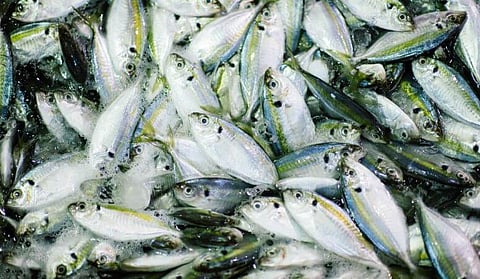
- Home
- Live Blog
- Breaking News
- Top Headlines
- Cities
- NE News
- Sentinel Media
- Sports
- Education
- Jobs

It is indeed a positive development that the Government of Assam is soon going to launch a new kind of fish farming in the state. Called ‘cage culture’, it is however not entirely new to Assam. Asian Development Bank had a few years ago supported two fishery cooperatives in Assam, one near Thekeraguri in Morigaon district and the other in Golaghat, both of which have turned out to be successful. This probably is the reason or motivation behind the plan to introduce cage culture on a larger-scale across the state. According to news reports, the scheme will be initially implemented in ten wetlands or beels in Baska, Bongaigaon, Baroeta and Nagaon districts as a pilot project, though the fact remains that the Morigaon and Golaghat experiments have been by and large encouraging. Assam is one state in the country which has a large number of wetlands – according to the Assam Remote Sensing Application Centre, there are about 5,200 wetlands in Assam.
These wetlands occupy about 10,000 sq km area out of the total geographical area of 78,438 sq km. The number of registered beels on the other hand is around 430, while there are 1,192 swamps and low-lying areas and 1,85,825 pukhuris – big and small tanks. All these are potential wetlands for fish rearing. But, despite this vast aquatic resource, Assam is yet to reach self-sufficiency in production of fish, whether in providing livelihood or in providing minimum nutritional requirement of 11 kg per person per annum. This is because scientific fish-rearing is carried out only in about five to six per cent of the state’s total water resource area, including the mighty Brahmaputra, the Barak and their 120-odd tributaries. Compared to most states of the country, Assam is also rich in fish variety. The state has about 216 fish species. Out of these 216 species reported so far, scientists have said that as many as 210 species have food value, while 12 species have importance as sport fish and around 150 species have ornamental value. The annual production of fish in 187 beels under the management of Assam Fisheries Development Corporation has gone up from about 2,712 metric tonnes in 2006-07 to about 4000 metric tonnes in 2017-18. What however is not very good about the beels under management of Assam Fisheries Development Corporation is that only about 25 of them are managed by cooperative bodies comprising members of the local communities, while the bulk of beels are in the grip of private individuals. These individuals exploit the resources of the beels to the maximum, in the process reducing the sustainability of these rich water bodies that Nature has endowed Assam with. Assam being a predominantly fish-consuming state, more than 90 per cent of the state’s population eat fish. Though the production of fish has significantly increased in Assam, the domestic production continues to be still too less to meet the annual demand of roughly 3.46 lakh metric tonnes. Thus, a huge quantity of fish comes to Assam, as also to other states of the Northeast from Andhra Pradesh.
Fish from the southern state however not only loses freshness by the time it reaches Guwahati and other corners of the region, but also allegedly contains chemicals like formalin which are definitely not good for health. According to Section 3(1)(zz)(v) of Food Safety and Standards Act, 2006, formalin is not permitted in any food item. What the Sarbananda Sonowal government should do is instruct the fisheries department and the Assam Fisheries Development Corporation to identify local youth who are willing to take to fish-rearing, organize them into cooperative societies, get the Fishery College at Raha to impart basic scientific knowledge about fish-rearing, engage marketing experts to train them in marketing, and set up market linkages that have no scope for middlemen – so that while fish-rearing provides livelihood to a large section of unemployed youth, it also makes Assam self-sufficient in fish production.